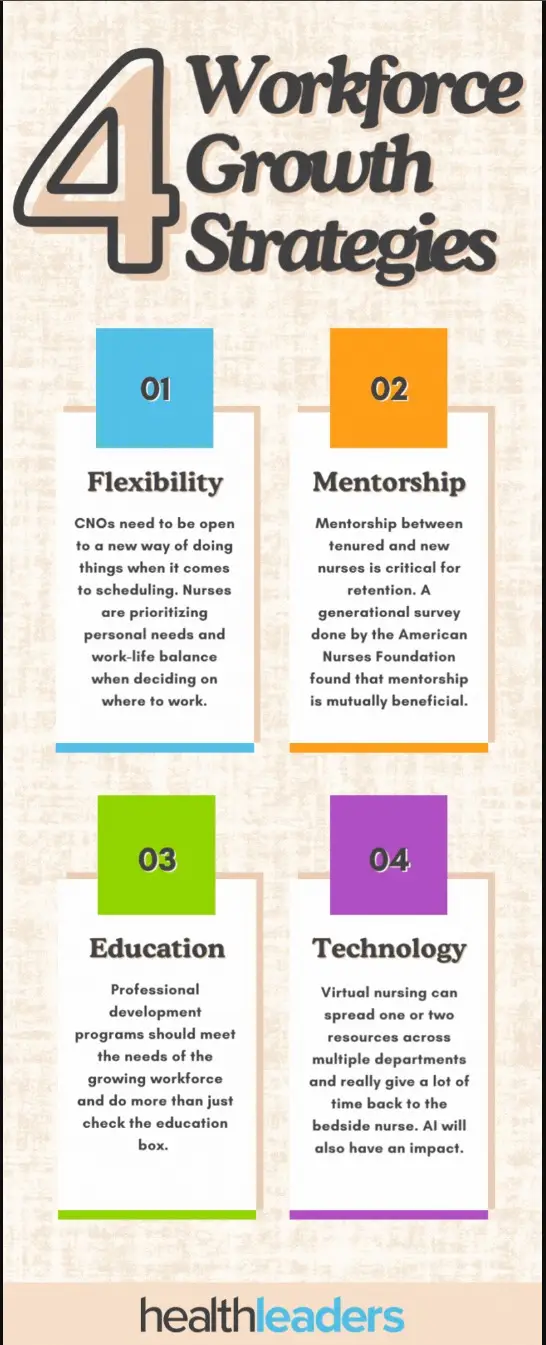In the ever-evolving landscape of healthcare, workforce growth and development are paramount to maintaining high standards of patient care and also operational efficiency. Here, we explore four workforce growth strategies

Flexibility
One of the primary factors influencing nurse retention and job satisfaction is flexibility in scheduling. Chief Nursing Officers (CNOs) must be open to innovative scheduling practices that accommodate the personal needs and also work-life balance of nurses. By prioritizing flexibility, healthcare institutions can create a more supportive work environment that appeals to nurses’ preferences, thereby improving retention rates and also overall job satisfaction.
Key Points:
Emphasize work-life balance.
Adopt new scheduling practices.
Enhance nurse retention through flexibility.
Mentorship
Mentorship plays a crucial role in the professional development and retention of new nurses. Pairing tenured nurses with newcomers fosters a supportive learning environment that benefits both parties. According to a generational survey by the American Nurses Foundation, mentorship is mutually beneficial, aiding in the retention of new nurses while also providing experienced nurses with leadership and teaching opportunities.
Key Points:
Critical for new nurse retention.
Fosters a supportive learning environment.
Benefits both mentors and mentees.
Education
Continual professional development is essential for a competent and confident nursing workforce. Professional development programs must go beyond merely checking the educational box; they should be tailored to meet the evolving needs of the workforce. Effective education strategies help nurses stay updated with the latest medical knowledge and practices, which is vital for providing high-quality patient care.
Key Points:
Tailor programs to workforce needs.
Ensure continual professional development.
Update nurses with the latest medical knowledge.
Technology
Incorporating technology into nursing practices can significantly enhance efficiency and patient care. Virtual nursing, for example, allows one or two nurses to manage multiple departments, freeing up time for bedside care. Additionally, advancements in artificial intelligence are expected to further impact nursing by streamlining administrative tasks and also providing decision support, thus allowing nurses to focus more on direct patient care.
Key Points:
Enhance efficiency with virtual nursing.
Leverage for administrative tasks.
Focus more on direct patient care.
Conclusion
Adopting these four strategies—flexibility, mentorship, education, and technology—can drive significant growth in the healthcare workforce. By addressing the specific needs and challenges faced by nurses, healthcare institutions can not only improve retention rates but also ensure a highly skilled and also satisfied workforce. These strategies collectively contribute to a robust, adaptable, and also forward-thinking healthcare system.










